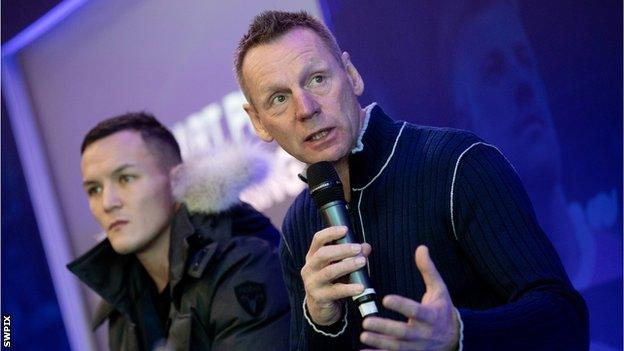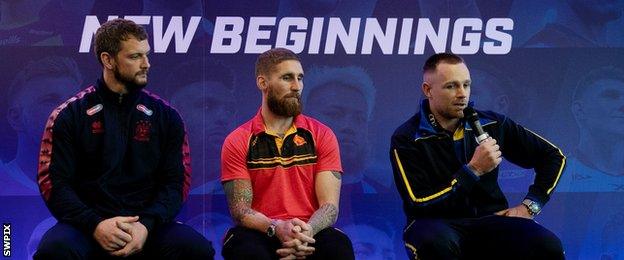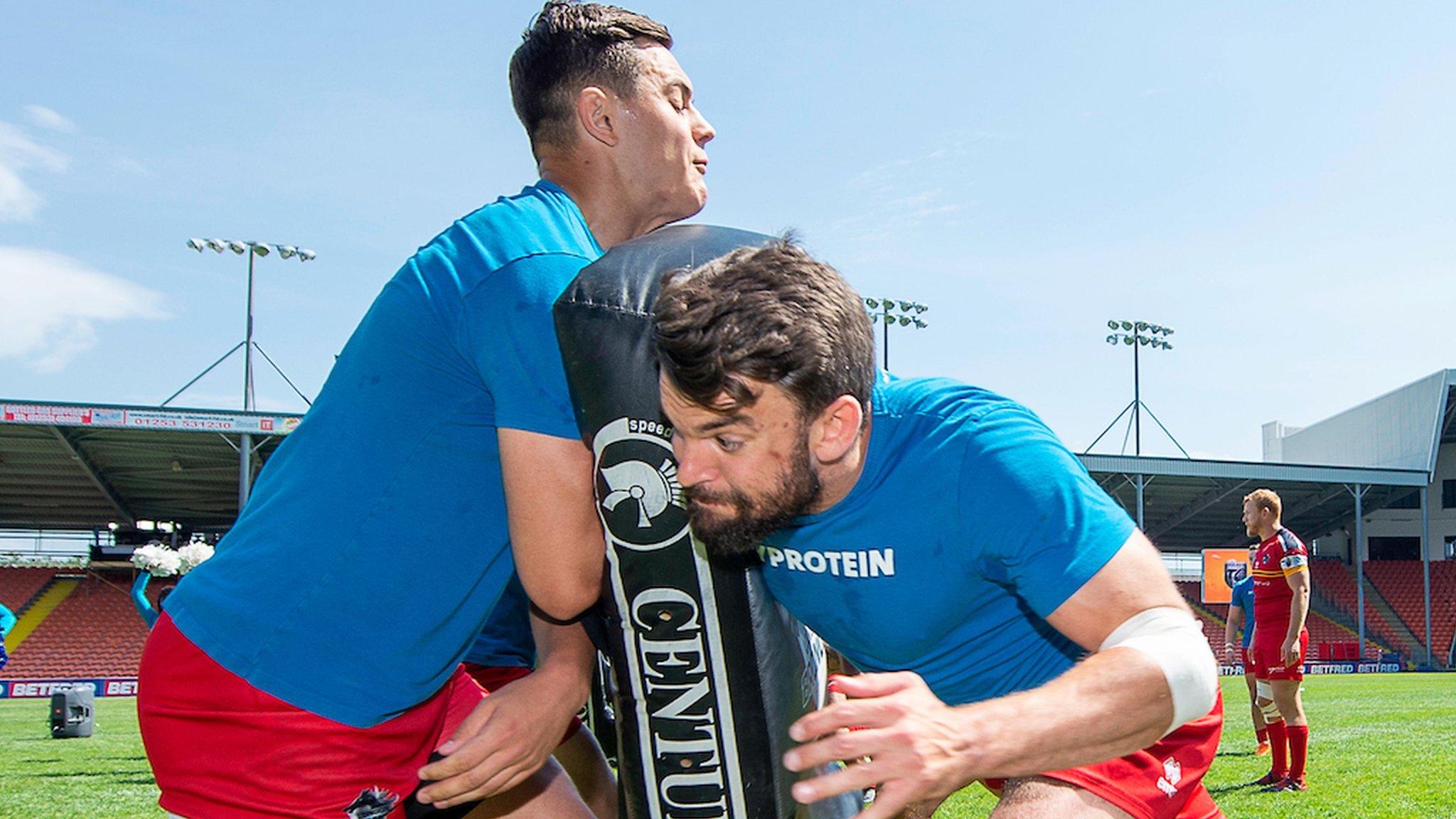Super League: Why 2019 season could be pivotal for rugby league
- Published
- comments

Former England footballer Stuart Pearce and IBF featherweight world champion Josh Warrington were at the Super League launch and talked of their love of the game
Betfred Super League |
|---|
Coverage: Selected full match commentaries on BBC Radio 5 live, BBC Radio 5 live sports extra, BBC local radio and the BBC Sport website, listen to the weekly BBC Rugby League podcast, watch the Super League Show, selected live text commentaries and reports of every game on the BBC Sport website. |
Season starts: Thursday 31 January. |
'New beginnings' was the buzz phrase that decorated the launch of the new Super League season, which kicks off on Thursday night as St Helens host Wigan.
And there is a genuine feeling that, after months of rancour, rows and upheaval off the field, 2019 could be a pivotal year for the sport.
The start of any new season brings a heightened sense of anticipation and a feeling of optimism. But the game's tinkered-with league structure, rules and playing roster make this year much more mouth-watering.
We've heard a lot - too much - from men in suits over the last few months.
Rugby league has been going through its own version of Brexit, with Super League's split from the Rugby Football League and the top 12 clubs establishing their own self-determination. And we've all got bored of the machinations of that.
But now the focus will be back where it should be, with the players on the field. And they have been given the platform to sparkle.
There are three factors that make the game more watchable this year. The first is rule changes.
The introduction of the 'shot clock' will renew the vigour of matches that had tended to become very sluggish in the last couple of seasons.
Time-wasters at scrums and drop-outs will now be penalised, and the game will sharpen up as a result.
Having just eight interchanges instead of 10 also increases the fatigue factor.
So the big men who worked in 10-minute shifts will now have their licences revoked and have to put in bigger minutes of more tiring work. And that should allow the skilful footballers more room to shine.

Wigan's Sean O'Loughlin, new Catalans signing Sam Tomkins and new Warrington arrival Blake Austin spoke at the launch
Factor two is the playing roster. There has been an influx of genuine quality from overseas, with some high-pedigree players arriving from the NRL still at the height of their careers.
The arrivals of Blake Austin (Canberra Raiders to Warrington), Trent Merrin (Penrith Panthers to Leeds) and Kevin Naiqama (Wests Tigers to St Helens) just skims the surface of talented incomers.
But we also know our boys are good. England's back-to-back breakthroughs of near World Cup glory in 2017 and a Test series win over New Zealand last year can give us confidence to identify many of the indigenous Super League stars as 'world class'.
And finally, factor three: the new league structure. The Super 8s - where Super League and the Championship were split into three divisions after 23 rounds, with the Qualifiers, or Middle 8s, determining promotion to and relegation from the top flight - were noble in their ambition but flawed in practice.
That league structure just threw clubs into a washing-machine style set-up, with a destabilising effect.
A guarantee of worst Super League team gets relegated and best in the Championship gets promoted makes much more sense.
And the top five play-off system rewards season-long success in the race for Old Trafford, whilst also setting up a potentially nail-biting final few weeks of the domestic campaign.
Both IBF featherweight world boxing champion Josh Warrington and former England football international Stuart Pearce were at Old Trafford last week for the official launch of the new season.
Both - like many other athletes from different disciplines - are fanatical followers of rugby league, happy to praise the athleticism, honesty and high-intensity skill of those who play the 13-a side code.
There was a bewilderment in Pearce's words when he described rugby league as British sport's best kept secret. Why aren't more people tuning in to this code?
The hope is that with clubs, coaches and players all now determined to push the game, it can reach the parts of the British sporting psyche where it's never been before.
And with the new season promising to deliver a much faster, more skilful and eye-catching game on the field, barriers can be broken down.
Maybe then that secret can be shared.
- Published31 January 2019
